All Faculty and Staff In-Service
EQUITY, DIVERSITY, AND INCLUSION DAY 2025:
MEETING THE MOMENT AND MAINTAINING THE MOMENTUM
All Faculty and Staff In-Service
EQUITY, DIVERSITY, AND INCLUSION DAY 2025:
MEETING THE MOMENT AND MAINTAINING THE MOMENTUM
7:30 AM - 3:30 PM
McGavick Conference Center
Now more than ever, the Office of Equity, Diversity, and Inclusion remains committed to providing CPTC with robust and timely professional development aligned with our values of access, collaboration, diversity, equity, excellence, inclusion, innovation, and respect. As an open-access college, we are committed to these values and being responsive to campus and national climate, especially when it has potential to impact the students we serve.
As an institution of public higher education in the state of Washington, we must also remain compliant with RCW 28B.10.145, which requires us to offer professional development directly related to diversity, equity, inclusion, and antiracism.
This All Faculty and Staff In-Service day is required for and limited to current CPTC employees. No classes will take place this day to maximize full participation from our staff, faculty, and administrative leadership community”
Agenda
7:30-8 A.M. Check-In and Continental Breakfast
8-8:30 A.M. Welcome and Opening Remarks
8:30-9:30 A.M. Our Unwavering Commitment to Serving our Communities: A Review of the Immigrant Rights and Non-Discrimination Policy
9:30-9:45 A.M. BREAK and Transition to Concurrent Workshops
9:45-10:45 Concurrent Track 1
Concurrent Track 1 Sessions: Deepening our EDI Skill Building
The Role of Bystander Intervention in Creating Communities of Belonging – Sophia Agtarap
Have you ever experienced or witnessed a form of bias and didn’t know how to respond? Most folks have likely encountered bias and maybe didn’t even know. As a community of people who are working together to create spaces of belonging and inclusion, what does it look, sound, and feel like to interrupt when we see instances of bias, racism, transphobia, sexism, and more, occur? What is the possibility of what can happen in that moment and beyond? We’ll come together to understand language and practices that can help move each of us to intervene when we witness or experiences instances of bias in our communities.
Maintaining Momentum for EDI Work (For CPTC Presidents Executive Cabinet) – Megan Matthews
In order to further enhance our college’s commitment to diversity, equity, and inclusion (DEI), this workshop is a strategy session for Executive Cabinet. The team will address how to match Washington state’s pro-DEI stance, how state institutions continue to maintain momentum around DEI in this time, and more.
Navigating Difficult Conversations – Sheli Sledge
Navigating difficult conversations can leave us feeling uncomfortable, vulnerable, and unprepared. Navigating difficult conversations during times of conflict in our teaching and working spaces can require many skills like, open communication, actively listening, managing our emotions, intentional empathy, self-awareness and respectful dialogue. This workshop is designed to introduce skills to help prepare for challenging conversations, manage conflict, improve communication, and work towards constructive conversations with an eye towards advocacy, mutual understanding, and equity
Mitigating Bias in Generative AI – Clover Park Technical College Teaching & Learning Center
This interactive workshop will equip faculty and staff with the knowledge and tools to identify, understand, and mitigate bias in generative AI systems. Participants will explore the ethical implications of AI bias, examine real-world case studies, and engage in hands-on activities to evaluate AI-generated content. The session will introduce practical strategies for integrating responsible AI use into the classroom, emphasizing critical thinking, fairness, and transparency. Participants will leave with actionable steps to help students navigate AI technology ethically and effectively.
Community, Identity & Coalition Building through Art – Eileen Jimenez
Collaborate with IndigiQueer artist Eileen Jimenez (Ñätho) to create artwork that reflects our experiences and relationships with Land, to joy, to resilience, to ourselves, and to our communities. During this workshop we will explore printmaking from pre-carved blocks, and watercolor to co-create art. During our time together we will also connect with each other, and reflect on what it means to coalition build and center our work in community and through art.
Critical Thinking and Managing Bias – Luke Ruiz
This workshop explores the importance of critical thinking and the management of bias in higher education. Participants will be introduced to key characteristics, strategies to enhance their analytical skills, work through real-life examples. Through interactive exercises and discussion, attendees will learn practical tools to recognize and mitigate these biases in both their own thinking and in the classroom or work environment at CPTC. This workshop empowers staff and faculty to approach institutional challenges with clarity, fairness, and intellectual rigor.
Empowering Veteran Students for a Brighter Future – Dee Ladson
Join us for an informative workshop designed to support student veterans in navigating campus resources, VA education benefits, and career opportunities. Learn about academic support, financial aid, and wellness services tailored to veterans. Connect with fellow student veterans and get answers to your questions from knowledgeable staff. Whether you’re just starting your academic journey or planning your next steps, this workshop will provide valuable insights to help you succeed. Don’t miss this opportunity to maximize your benefits and make the most of your college experience!
10:45-11 A.M. BREAK and Transition to Concurrent Workshops
11 A.M.-12 P.M. Concurrent Track 2
Concurrent Track 2 Sessions: Using Policy, Culturally Responsive Practices, and Procedures to Uphold a Community of Care
The Role of Bystander Intervention in Creating Communities of Belonging – Sophia Agtarap
Have you ever experienced or witnessed a form of bias and didn’t know how to respond? Most folks have likely encountered bias and maybe didn’t even know. As a community of people who are working together to create spaces of belonging and inclusion, what does it look, sound, and feel like to interrupt when we see instances of bias, racism, transphobia, sexism, and more, occur? What is the possibility of what can happen in that moment and beyond? We’ll come together to understand language and practices that can help move each of us to intervene when we witness or experiences instances of bias in our communities.
Cultural Humility: The What and the How – Ashley Bennett
In this session we will cover what cultural humility is and the key principles/values attached to it. We will explore the difference between the term cultural competency versus cultural humility. We investigate how cultural humility enhances experiences and engagement in various arenas and discuss how to embed it in education and curriculum design.
We Won’t Let Policies Erase People: Supporting and Advocating with our Trans and Non-Binary College Community – Dr. Tolulope Taiwo
This session will address federal and state policies that discuss gender-expansive identities and discuss ways we as practitioners can support and advocate with our trans and non-binary students, faculty, and staff on campus.
Honoring Disability Culture and Fulfilling Accessibility Access in Higher Education Spaces – Sarah Addington
Technology around accessibility has been evolving at a rapid rate along with an overall shift in the paradigm of disability culture. Higher education should explore the implementation and impact of current policies, at both the state and federal level, overall accessibility, as well as honoring the modern approach to disability culture within the community – “Nothing about us, without us”. The goal is to utilize policy to support the success of students with disabilities, through equitable access to education via accessible accommodations.
Policy and Procedure Overview Regarding Concerning Behavior – James Neblett, AVP of HR&C, Dean Kelly, VP of Student Success
Broad overview of processes and procedures regarding reporting, investigation, and resolution of concerning behaviors to include: Better CPTC reporting, Student Conduct, BIT, and Harassment, Intimidation, Retaliation, and Bullying.
Supporting Asset Limited, Income Constrained, Employed Students – United Way Of Pierce County
This session will discuss the Asset Limited, Income Constrained, Employed (ALICE) model and present three programs that support this population—Growing Resilience In Tacoma (GRIT), Centers for Strong Families, and 211. Faculty and staff will then reflect on ways to support Clover Park ALICE students.
UndocuBasics: Snapshot of Undocumented Experience in Higher Education – Gabriela “Gaby” Osorio
This session will give participants a brief introduction to the experience of the undocumented immigrant community in post-secondary education. It covers some of the terminology and identities of the undocumented community. It will also provide a short timeline of the laws and policies impacting this community as it pertains to post-secondary education. (Please note that Gaby is also doing a “Part 2” to this session in the afternoon, and attending both sessions may make sense for deeper learning).
12-1 P.M. Lunch – Catered by Nola Cuisine
1-2 P.M. Concurrent Track 3
Concurrent Track 3 Sessions: Using Trauma-Informed Approaches to Nurturing a Community of CARE
The Role of Bystander Intervention in Creating Communities of Belonging – Sophia Agtarap
Have you ever experienced or witnessed a form of bias and didn’t know how to respond? Most folks have likely encountered bias and maybe didn’t even know. As a community of people who are working together to create spaces of belonging and inclusion, what does it look, sound, and feel like to interrupt when we see instances of bias, racism, transphobia, sexism, and more, occur? What is the possibility of what can happen in that moment and beyond? We’ll come together to understand language and practices that can help move each of us to intervene when we witness or experiences instances of bias in our communities.
UndocuSeeds: Developing Safe Spaces – Gabriela “Gaby” Osorio
This session touches upon the various degrees of comfort the undocumented immigrant community experience when sharing their immigration status. A discussion of resources and supports will be introduced to begin viewing services for students through an undocumented lens. Participants will take away “seeds” that they can begin cultivating in their work.
Leading through Uncertainty – Tony McMath
Unlock the power of effective leadership in our session, "Leading Through Uncertainty." Guided by John Maxwell's principle that "leadership is influence," this session is designed for anyone looking to enhance their leadership skills, whether you lead a team, manage projects, or simply aim to inspire those around you. We'll explore the nature of uncertainty, its emotional impact, and what individuals seek during challenging times. Through Maxwell's leadership insights and the DISC personality framework, you'll discover how to leverage your unique strengths, address weaknesses, and positively influence those around you. With practical examples and interactive discussions, you'll be equipped to navigate uncertainty with confidence and resilience, making a meaningful impact in any situation. Ready to turn challenges into opportunities? Join us and elevate your leadership journey!
The Culture Cycle: Building a Community of Care – Jovan McCoy
A thriving community doesn’t happen by chance—it’s intentionally built through shared values, trust, and consistent action. In this interactive workshop, participants will explore the Culture Cycle, a framework that describes a recursive process where people create cultures, and then those cultures shape people’s actions. Through engaging discussions and hands-on activities, attendees will learn how to: Identify the key elements of a strong organizational or team culture, foster trust and respectful workplace culture for meaningful collaboration, and implement practical strategies to build a Community of Care that enhances engagement, resilience, and well-being. Whether you're a leader, educator, or team member, this session will equip you with the tools to cultivate a culture where people not only belong but thrive. Join us to transform your department into a space of support, growth, and lasting impact!
Imagine Otherwise: Advancing Diversity and Inclusion in Higher Education Through Critical Creativity – Angelica Hambrick
Williams (2013) argued, “Too often, strategic thinking is constrained by a lack of creativity” (p. 214). Radical imagination and critical creativity are integral to addressing inequitable higher education outcomes. In this session, we will practice strategies to Imagine Otherwise, designed to innovate new tools and create new blueprints for change.
Managing Compassion Fatigue In The Face Of Collective Trauma– Nicole Hoyes Wilson
For many of us, the world feels uncertain and scary. As educators we are experiencing collective trauma with our students, colleagues, and ourselves. In this session we will learn how trauma impacts our physical bodies, emotions, cognitions, and behaviors. Drawing from the work of Laura van Dernoot Lipsky and trauma stewardship, we will learn how to manage compassion fatigue and burn out in ourselves and others using radical self and collective care, and rest as resistance.
Equipping for Mental Health: A First-Aid Kit for Supporting Students in Crisis and Building Resilience -Carrie Van Beek & Rachael Butler
Equipping for Mental Health: A First-Aid Kit for Supporting Students in Crisis and Building Resilience" provides staff and faculty with the essential tools to effectively support students facing mental health crises. Participants will learn strategies to respond with empathy and understanding, while also gaining practical skills to help students build long-term mental health resilience. This interactive session covers crisis intervention techniques, communication strategies, and ways to foster a supportive environment that encourages students to seek help and develop coping skills.
Liberation and Rest Sound Bath - Tory Trujillo
Vibrational Sound has been used to support healing, rest, and transformation for eons. Understanding that Rest is resistance, rest is revolution, and rest is self and mutual care, participants are invited to rest during this workshop. Tory Trujillo will play Quarts Crystal Singing Bowls, A Mayan Ocean Drum, and will incorporate Vocal Toning. Participants are welcomed to sit or lie down comfortably and will be lead into the experience with guided breath work and an embodiment practice. There will be a closing circle to close the workshop. Participants are encouraged to bring yoga mats, bolsters, blankets and other items comfort items.
2-2:15 P.M. BREAK and Transition Time
2:15-3 P.M. Large Group Activity - McGavick Conference Center
3-3:30 P.M. Closing, Remarks & Participation Door Prizes
Speaker Bios
Sophia Agtarap
Sophia is a 1.5 generation Filipina American who values curiosity and wonder as she navigates the world. She works alongside individuals and communities at the intersections of justice, equity, belonging, and sustainability as we do the brave and hard work of imagining the world we want to build, and animating others to create a more just society where all may thrive—people, planet, and all living beings.
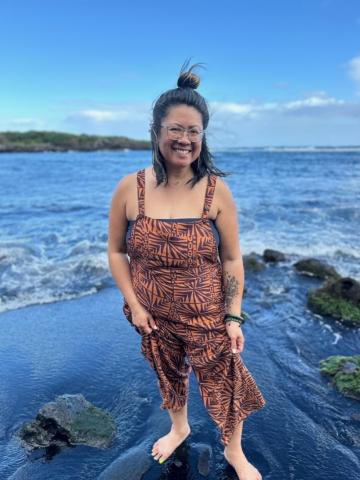
Figure 1 Sophia Agtarap
Megan Matthews
Megan Matthews is the Director of Washington State’s Office of Equity, boldly advancing a Washington for All. She has been a public servant in Washington state government for 16 years, working her way up from an entry level position. She is committed to a lifelong journey of pursuing and living the values of equity and justice. She is a courageous and innovative leader, loves a good debate, and strives to maintain her humility.
Megan earned her master’s degree in public administration from The Evergreen State College. Megan co-taught a Masters’ Program at The Evergreen State College, emphasizing democratic governance and social change for current and future public administrators Megan is dedicated to social justice and ensuring fairness and hope for everyone, especially the next generation that includes her daughters, nieces, and nephews
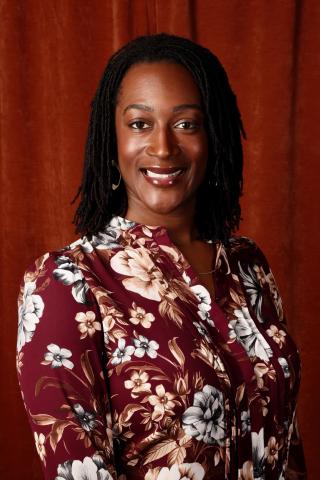
Figure 1 Megan Matthews
Sheli Sledge
Sheli Sledge serves as the Executive Assistant to the Division of Equity, Diversity, and Inclusion at Clover Park Technical College and has worked in multiple divisions from EDI to Student Success to Instruction in the last eighteen years. Equity, Diversity, and Inclusion work has been a passion of Sheli’s for decades, building common ground, understanding, and self-awareness on how EDI is an integral part of us all. Sheli received her degree in Early Care and Education from SPSCC and is a certified Instructor in Adult Accelerated Learning Technique, as well art and dance. Prior to pursing her education, she worked eight years as a Quality Customer Service Trainer both domestically and internationally before joining CPTC and has been honored to help build CPTC’s foundational pillars of EDI from the ground up, serving on committees, teaching workshops, as well as part time adjunct for the Early Care and Education and Continuing Education Programs.

Figure 2 Sheli Sledge
Clover Park Technical College Teaching & Learning Center
The Teaching & Learning Center (TLC) at Clover Park Technical College supports faculty in creating engaging, innovative, and student-centered learning experiences. Through professional development, instructional design, and pedagogical support, we help educators enhance student success and foster continuous learning. Our Team: Kristin Copeland, Dean/Director of the Center – Leads faculty development and instructional excellence, focusing on high-impact teaching strategies for faculty and student success. Geoff Cain, Instructional Designer – Expert in instructional design, open education, accessibility, and digital learning, helping faculty create effective, engaging courses. Ronald Lethcoe, Instructional Designer – Collaborates with faculty on curriculum development and innovative teaching strategies to boost student engagement. James Shumate, Instructional Designer – Specializes in integrating technology with pedagogy to optimize materials and improve learning outcomes. The TLC creates a collaborative environment where faculty can refine their teaching approaches and grow professionally. We offer one-on-one consultations, workshops, professional development courses, and resources to support faculty in making a lasting impact on student learning.
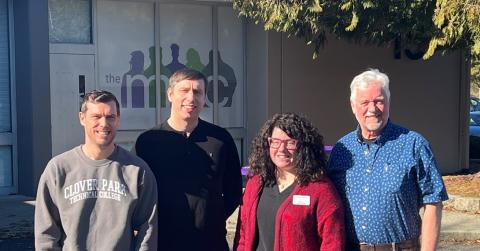
Figure 3 Ronald Lethcoe, James Shumate, Kristin Copeland, and Geoff Cain
Eileen Jimenez
Eileen's mother is Maria Cruz, her grandmother is Eloisa, and her great grandmother is Isidora, matriarchs of the Ñätho (Otomi Peoples of Michoacan/Guanajuato, Mexico). As an Indigenous leader, community member, educator and as an artist, everything she does and creates is influenced by her many intersecting identities and lived experiences. Eileen uses linocut and mixed-media techniques to develop her own ways of telling stories in the complex layers that they exist in, as well as to demonstrate the ways that we are connected to the Land and to each other.
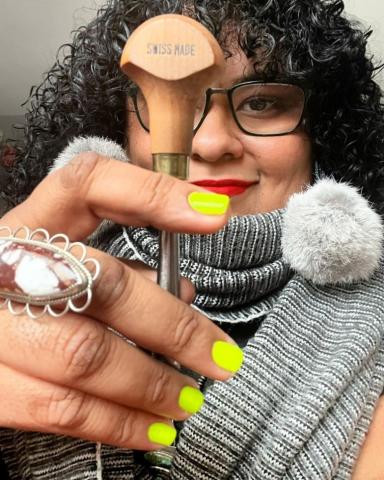
Figure 4 Eileen Jimenez
Luke Ruiz
Luke Ruiz (he/they) oversees and leads the Multicultural Office of Student Access, Inclusion, and Community (MOSAIC) Center at CPTC. Their work is informed by their experiences as a Latinx and queer person raised in a California barrio. Each day in the MOSAIC Center, he appreciates the diverse perspectives students bring to the space and collaborating on programs to shape how the center functions today. Luke is a strong advocate for students, especially those from minoritized and underrepresented backgrounds in our community and you will see that mindset permeating his work in and outside of higher education.
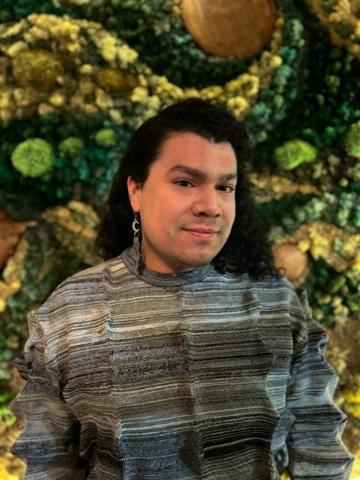
Figure 5 Luke Ruiz
Ashley Bennett
Ashley Bennett, a former New Jersey native, is a former public servant, public health, and mental health professional. She is a McNair Scholar and holds a bachelor's degree in psychology with a minor in organizational leadership from Rutgers University. Ashley has a Masters in Community Counseling from Georgian Court University and a master’s degree in public health with certificates in Health Education and Promotion and Health Management and Policy from Benedictine University. Ashley has been in the mental health field for over a decade and worked as a frontline mental health worker. Ashley served as the former District 3 County Commissioner of Atlantic County, New Jersey and New Jersey’s representative to the National Association of Counties Human Services and Education Steering Committee for 2019 and 2020. She has appeared in national and international media outlets including CNN and The View. Ashley currently works in state government focusing on health equity.
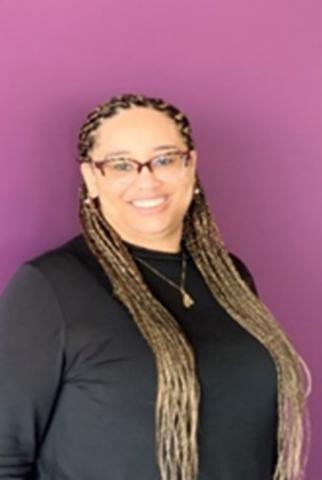
Figure 6 Ashley Bennett
Tolu Taiwo
Dr. Tolu Taiwo (she/they) is the current Associate Director of Equity, Diversity, Inclusion, and Campus Climate at Clover Park Technical College. They recently graduated with a doctorate in the Higher Education program at Azusa Pacific University, and their dissertation was on Black womxn educators’ activism practices and the decolonization of institutional spaces in South Africa. They also hold a depth of experience in culturally responsive pedagogy, student support services, mentorship with and for students of color, women of color and non-binary students of color, LGBTQIA+ students, and other traditionally underrepresented students in higher education. As a Black queer feminist scholar and higher education practitioner, Tolu is passionate about supporting their trans and non-binary students and community members, and knows that, as Assata Shakur said, “we must love and support each other.”
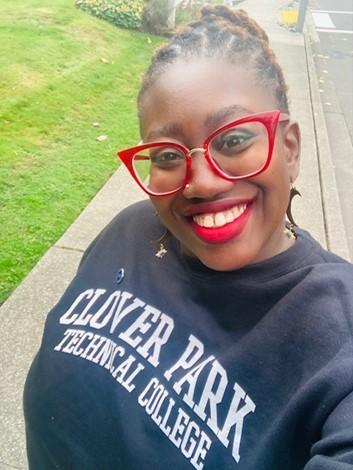
Figure 7 Dr. Tolulope Taiwo
Sarah Addington
My name is Sarah Addington (she/her/hers) and I feel honored to be Clover Park’s new Manager of Student Disability Services! While new to higher education, I have worked in the disability and accessibility field for over 5 years, in designation of accommodations, digital accessibility, physical disability support, and service delivery. I am very passionate about this field, and I hope that I can drive positive change while supporting our students with the tools that they need to succeed. In my free time, I enjoy taking my dog Ruby traveling and hiking, I love to create different forms of art, gardening, kayaking, and finding fossils and crystals rock hounding. Feel free to come by and geek out about it!
Thank you for the warm welcome at Clover Park!
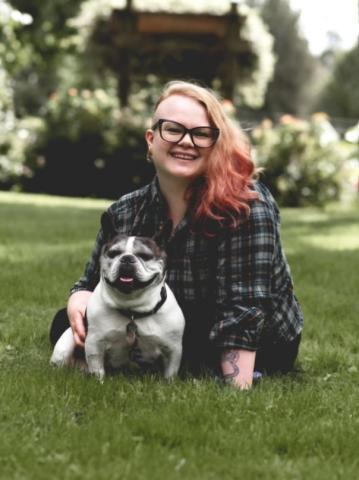
Figure 8 Sarah Addington and Ruby
Dean Kelly, VP of Student Success
Dean Kelly serves as the CPTC Vice President for Student Success and the previously the Director of Advising, establishing a new proactive advising model that matched advisors with programs and creating closer connections with faculty and students in the classroom. He also served as the Dean for Student Success with responsibilities for Student Conduct, behavior intervention, and Title IX. Since 2017, he has held the role of co-chair of the Guided Pathways/Achieving the Dream committee, facilitating campus-wide improvement efforts focused on increasing student access, retention, and completion. His 30-year career has spanned K-12, non-profit, and higher education industries. He earned a bachelor's degree in Secondary Education from Pacific Lutheran University and a master's in public administration from the University of Washington.
James Neblett, AVP of HR&C
Dr. James Neblett has 15 years of experience as a human resources leader and joined CPTC with specialized experience in organizational development, strategy, training and employee relations and works with senior leaders to help ensure equity, diversity and inclusion are prioritized and reflected in CPTC’s human resources programs, practice and policies. He has managed and streamlined HR operations for several notable organizations on the East and West coasts, including NantWorks/ImmunityBio, AT&T and Saks Fifth Avenue. Dr. Neblett has 14 years’ experience teaching human resources and leadership courses at major universities, including NYU, Chapman University and Mount St. Mary’s University. Neblett earned his BS from the Purdue University Daniels School of Business, an HR certificate from New York University, his MA in Organizational Management from the University of Phoenix, and his doctorate from Argosy University in Los Angeles

Figure 9 Dean Kelly & Dr. James Neblett
United Way Of Pierce County
United Way of Pierce County has served our community since 1921. Our history is rooted in partnerships—bringing people from different walks of life together to improve conditions for children, families, and individuals. While that will never change, our role as a community fundraiser has shifted as the United Way movement has sharpened our focus to solve key community issues that are preventing people from meeting their full potential. Today we are leading change by breaking the cycle of poverty in Pierce County.
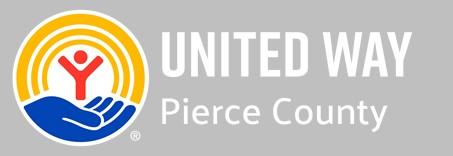
Gabriela “Gaby” Osorio
Gabriela (Gaby) Osorio has experienced many firsts in her life ranging from education to career and beyond. Her lived experiences lead her to navigate uncharted paths, yet she was able to connect with supportive people along the way. Gaby strives to set an example for her 2 younger siblings, make her parents proud, and continue to inspire others to see their limitless potential. As a co-founder of Omina, Gaby will honor the wisdom she’s gained throughout her journey and share it with all who welcome it.
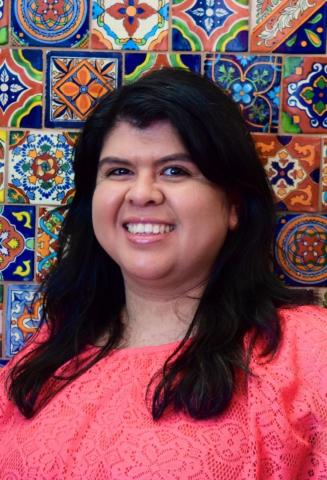
Figure 10 Gabriela "Gaby" Osorio
Tony McMath
As a powerhouse in personal development with over 30 years of expertise in training, developing, and equipping individuals, he currently serves as leader, speaker, coach, and trainer in his community and across the country. He serves as he President of the GiA Foundation in Brinkley, Arkansas, and is deeply committed to community service. His career highlights include six years as a leader in the military, seven years as a Trainer and Development Coach with Comcast, and five years mentoring under the John Maxwell Team. With specializations in communication, personal development, goal setting, and spiritual growth, Anthony holds a bachelor’s in communication and a Master’s in Adult Education and Curriculum Development. He has also served at East Arkansas Community College and the Arkansas Department of Corrections Men and McPherson Women’s institutions. Anthony's passion for helping others and personal growth drives his impactful work.

Figure 11: Anthony McMath
Jovan McCoy
Jovan McCoy is a passionate leader dedicated to fostering inclusive, high-performing communities through intentional culture-building. With a background in marketing, customer service, leadership development, nonprofit management, and education, he has spent over 15 years helping organizations, teams, and individuals create environments where people feel valued, supported, and empowered to thrive. As an Independent Certified Coach, Teacher, Trainer, and Speaker with Maxwell Leadership Certified Team, Jovan understands that a strong community is built on shared values, trust, and meaningful engagement. He has worked with businesses, schools, and nonprofits to develop strategies that prioritize a fear-free learning environment, collaboration, and well-being. Through dynamic presentations and interactive workshops, Jovan equips audiences with actionable insights to cultivate a sustainable Culture of Care—one that fosters hope, innovation, and continuous growth.
Whether guiding leaders or engaging entire teams, Jovan is committed to transforming workplaces and communities into spaces where people not only belong but also flourish.
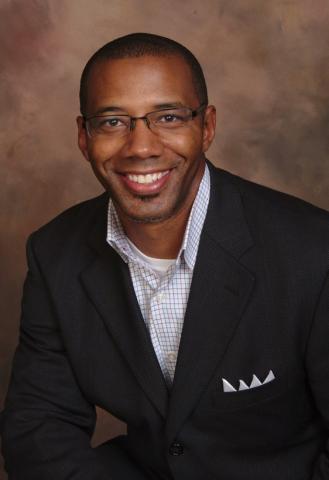
Figure 12 Jovan McCoy
Angelica Hambrick
Dr. Angie Hambrick is a mother, daughter, granddaughter, and great-granddaughter. She grew up in Milwaukee Wisconsin and is an only child. Being an only child taught her how to be creative, interdependent, empathetic, and most of all, a daydreamer – all of which ground her personally and professionally. At Pacific Lutheran University, Angie initiates, manages, and supports programs, initiatives, and services that enrich the university’s efforts to cultivate and sustain anti-racist and liberatory behaviors and frameworks. She also teaches courses in Gender, Sexuality, and Race Studies, the First Year Experience Program, and a Social Work course in Tobago West Indies and is a research mentor for Black girls and non-binary femmes.
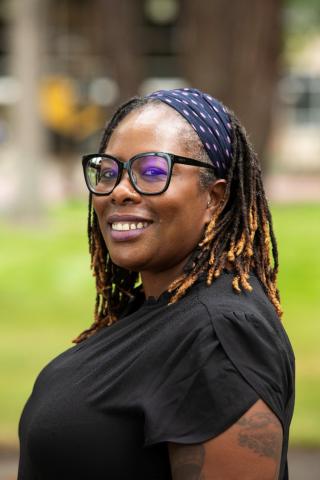
Figure 13 Angelica Hambrick
Nicole Hoyes Wilson
Nicole Hoyes Wilson, LICSW, LMHC (she/her/hers) currently serves as a tenured Faculty Counselor at Highline College. She is originally from Washington state and is a child of immigrant parents from Jamaica and England. As a licensed mental health counselor and licensed clinical social worker, she provides individual mental health counseling, crisis intervention, and educational outreach. Much of her clinical work has focused on the intersections of social justice, identity and mental health; namely, the impacts of racial trauma, sexism, and homophobia on one’s sense of self. Nicole has over 20 years of professional experience in higher education and also serves as an adjunct faculty member at Seattle University and the University of Washington. Nicole is often sought out for training and development focused on trauma-informed care, racial battle fatigue, and collective care. She has provided consultation and organizational leadership training for non-profits, universities, K-12 teachers, and legislators.

Figure 14 Nicole Hoyes Wilson
Rachael Butler
Rachael Butler has been a part of the Clover Park community since 2014, transitioning from student to graduate and now employee. With a Master’s in Psychology (Clinical Mental Health Counseling), and is dedicated to supporting individuals on their mental health journey. She uses strengths-based, person-centered approaches, integrating narrative therapy, believing each story is unique. Rachel is passionate about working with the LGBTQIA++ community, single parents, veterans, and families—walking alongside you as you create your own path to healing.

Figure 15 Rachael Butler
Tory Trujillo
Tory Trujillo is a Michigan native, Mixed Blood, Two-Spirit, Facilitator of Healing, and a Professional Vocalist. Her Mexican Indigenous heritage informs her work as a sound healer, bodyworker, and energy worker. Her sound Medicine offerings are deeply intuitive, healing, and transformational. She currently offers Sound Medicine to individuals and groups in the PNW and beyond. Her healing philosophy respects that every person’s layered bodies (physical, spiritual, emotional, energetic) are wise and oriented towards healing and balance. She sees herself as a facilitator of healing, supporting each person in tapping into their healing wisdom and capacities, releasing stored trauma, and regulating the central nervous system.
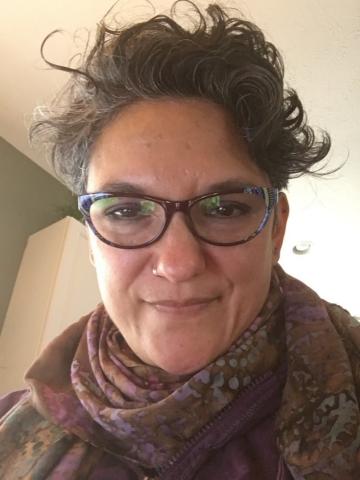
Figure 16 Tory Trujillo
Dee Ladson
Hello all, my Name is Dee Ladson and I am the manager of Veterans Services. I have an amazing team that works along side of me, Jason McNamara and Terrie Shanko who is out at our SHC. I’m a veteran and dedicated professional with a background in human services, psychology, and military service. Currently, I’m pursuing a master’s degree in psychology with a minor in life coaching. My passion lies in fostering student success by creating meaningful experiences, programs, and resources that support both academic and personal growth. With my knowledge in student support services, I am committed to helping students complete their studies on time and at equitable rates. My military experience has shaped my leadership, discipline, and commitment to service, which I bring into my work every day. Above all, I’m a proud parent of three intelligent children, including two sons and a daughter. My work is guided by compassion, informed by my education, life experiences, and dedication to helping others succeed.
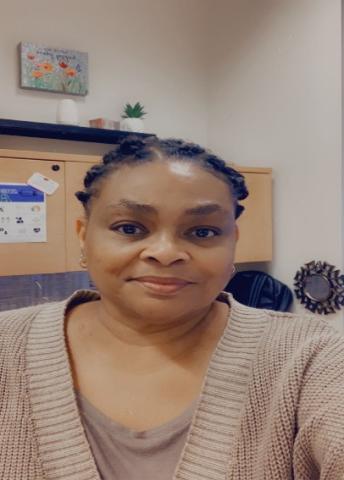
Figure 17 Dee Ladson
Carrie Van Beek
Carrie Van Beek, holds a Bachelor of Science in Community Health (Chemical Dependency), a Master of Arts in Psychology (Counseling), and a Master of Science of Psychology (Industrial and Organizational) and is trained in Cognitive Behavioral Therapy with a Humanistic focus emphasizes the belief that individuals are self-aware, responsible for their actions, and capable of making meaningful life changes. She approaches every interaction by meeting people where they are, supporting them in their unique journey toward growth and transformation.
